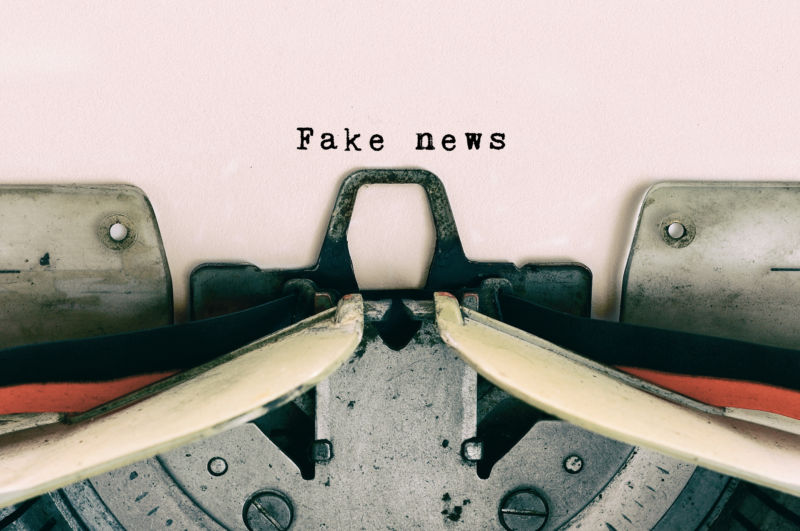
The US State Department wants to team up with other government agencies and Hollywood in a bid to create a "fake Twitter feud" about the importance of intellectual property rights. As part of this charade, the State Department's Bureau of Economic Affairs says it has been seeking the participation of the US Office of Intellectual Property Enforcement, the Motion Picture Association of America, the Recording Industry Association of America, the US Patent and Trademark Office, and "others."
To make the propaganda plot seem more legitimate, the State Department is trying to enlist Stanford Law School and "similar academic institutions" to play along on the @StateDept feed on Twitter.
"We're not going to participate," Mark Lemley, the director of the Stanford Program in Law, Science, and Technology at Stanford Law School, told Ars in an e-mail. He recently received an e-mail (PDF) and a telephone call from the State Department seeking his assistance.
"Apparently there is not enough fake news for the US government," Lemley told his Facebook followers. On the Facebook post, he redacted the name of the official who sent him the letter out of privacy interests. The RIAA declined comment, as did the trademark office. The MPAA said it is not participating.
Plotting propaganda
The propaganda plot became public on July 4, when Lemley posted the State Department's plan on his Facebook account. In the State Department e-mail to Lemley, the agency mentions a phone message left with the professor, and it discusses "fake" news, saying:
So a little bit of a recap from the message that I left you this morning. The Bureau of Economic and Business Affairs wants to start a fake Twitter feud. For this feud, we would like to invite you and other similar academic institutions to participate and throw in your own ideas!
Wary over whether this was actually "fake news" about a "fake Twitter feud," we asked the State Department for comment. The agency confirmed the authenticity of the June 26 e-mail sent to Lemley—in a roundabout way, of course.
(All of this comes during the backdrop of President Donald Trump routinely criticizing the media for publishing what he says is "fake news.")
The State Department official who confirmed the e-mail declined to have their name published and also tap-danced around the issue in an e-mail to Ars:
Your question: Is it true that the State Department is working to create a fake Twitter feud promoting intellectual property rights?
No. The State Department engages on various social media platforms and regularly works with partners to develop campaigns to highlight important policy priorities such as intellectual property rights and enforcement. The intention of the email was simply that—to seek partners for a dialog that would raise awareness of an important economic issue and to do it in a good-natured, competitive way that was clearly understood as such.
The Department's Office of Intellectual Property Enforcement (IPE) advances US economic interests by promoting intellectual property rights around the world. More than 45 million US jobs, 50 percent of US exports, and almost 40 percent of US GDP are in intellectual property-intensive industries. The Office advocates for the effective protection and enforcement of intellectual property rights around the world by engaging with the private sector, civil society, and other governments on these issues in a variety of formats including social media.
The e-mail to Lemley also says the big IP lobby groups are on board, as are "others":
Some characters from the IP community here in DC have agreed to participate with their own tweets: US Patent and Trademark Office, the Copyright Alliance, the Motion Picture Association of America, the Copyright Office, and the Recording Industry Association of America. We hope to diversify this crowd with academic institutions, sports affiliations, trade associations, and others!
The chief lobbying group for the major Hollywood studios told Ars that the MPAA was not on board.
"While we did participate in a preliminary discussion of how to highlight the economic benefits of copyright, we had not reviewed nor would we have participated in the plans as outlined in the State Department email," MPAA spokesman Chris Ortman told Ars in an e-mail.
Counterfeit IP
So how is this fake Twitter campaign supposed to be carried out?
According to the e-mail, the fake campaign is expected to start next week. It entails officials using the @StateDept feed to initiate pro-IP discussions and then the participants seeding the feed with positive responses.
According to the State Department e-mail sent to Lemley:
The week after the 4th of July, when everyone gets back from vacation but will still feel patriotic and summery, we want to tweet an audacious statement like, "Bet you couldn't see the Independence Day fireworks without bifocals; first American diplomat Ben Franklin invented them #bestIPmoment @StateDept" Our public diplomacy office is still settling on a hashtag and a specific moment that will be unique to the State Department, but then we invite you to respond with your own #MostAmericanIP, or #BestIPMoment. Perhaps it will [be] an alumni defending intellectual property in the courts or an article that your institution has produced regarding this topic.
Ars will keep on eye on the @StateDept feed to see if and when the "fake Twitter feud" begins. The agency hasn't responded to us about whether the feud will be carried out.
For now, the State Department's feed is filled with posts about International affairs like North Korea's recent missile launch, Middle East peace, Trump's engagement with Poland, the recent launching of an ICBM by North Korea, and the recent attack on the Venezuelan National Assembly.
We can't wait for the tweets about Ben Franklin's bifocals. What a spectacle that would be.
reader comments
175